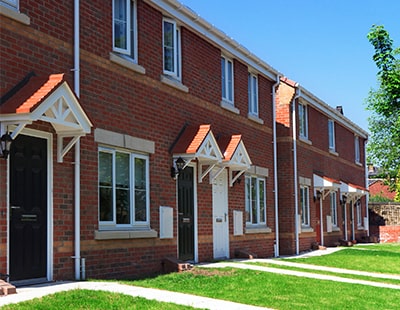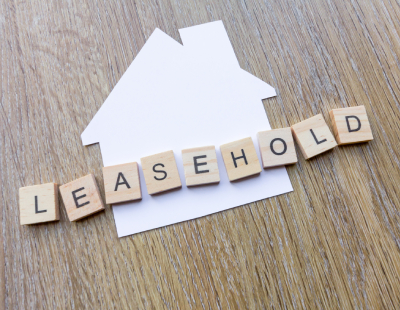And, overall, it’s still more consultation, consultation, consultation than action, action, action when it comes to solving the leasehold riddle.
In the first part of our campaign, we featured a landlord and a homeowner who have both been severely affected by the leasehold scandal and outlined why we are backing plans to replace leasehold with commonhold. Here, to further shine a light on the issues caused by the leasehold scandal and provide some possible solutions, we have spoken to a panel of experts to get their opinions on the matter.
This is a people-led campaign, though, and we’d also love to hear your thoughts in the comments section below.
Beth Rudolf, director of delivery at the Conveyancing Association
First off, not all leasehold arrangements are evil and many of those with abusive issues could be solved by the Ministry of Housing, Communities and Local Government (MHCLG) setting fees and timescales for administration services and capping ground rents below the Housing Act threshold.
It is after all a breach of the rule of law of derogation of grant to grant a long lease on one hand and turn it into an assured tenancy on the other.
What is vital to a positive leasehold ownership experience is that estate agents comply with CPRs so that buyers have all material facts before they make their offer.
That said, none of that will solve the fundamental issue that leases are a wasting asset because the term reduces.
Commonhold is the solution to that which will only be embraced if it is mandatory or comes with some financial incentive for developers to give up the economic value which they currently retain when selling leasehold.
Commonhold needs a few tweaks but frustratingly if it had taken off at launch I am confident that lawyers would have drafted around those issues by now as they routinely do with leasehold where it doesn't quite fit.
The MHCLG has all the consultation responses it could possibly need to make some fundamental reforms. We hope they don't duck the issue as has happened so often in the past - it is time to do the right thing and create a positive homeowning experience.
Louie Burns, managing director of Leasehold Solutions
To date, some of the rhetoric used by the government in response to the leasehold scandal has been encouraging, but it seems unsure of its stance which remains very changeable.
Critically, its proposals so far don’t seem to be much help for existing leaseholders, which is the very group that currently needs the support.
The leasehold system needs to be abolished and there is absolutely no doubt that Commonhold is the best alternative - in fact it is the only option that can bring housing in this country into the 21st century.
Commonhold hasn’t yet been taken up because developers lose a major income stream if they walk away from leasehold.
Therefore, moving to Commonhold needs to be statutory, perhaps combined with a tax break for developers for the first few flats they sell to compensate them for the loss of income they’ll experience.
Despite good intentions, the government’s recent pledge to end toxic leasehold deals, signed by developers and freeholders, is simply insulting as it’s inviting the very people who are the architects of this scandal to be the people to sort it out – plus none of the major freeholders have signed up, making it completely ineffectual.
Gary Jackson, solicitor at national law firm Stephensons
It would appear that the government has the correct intentions. Its proposals would create much greater transparency and help to repair some of the lost confidence in the residential property market.
But there is one major shortcoming. The key points - the ban on leasehold houses and caps on ground rents - would only appear to help new buyers.
I don’t think they would help existing leaseholders, who are already trapped by ground rents above levels now accepted by most high street lenders or locked into excessive rent reviews, such as those resulting in ‘doubling ground rents.
If these proposals are enacted, they could find the value of their properties hit as they become less attractive to potential buyers.
The government must follow through on its pledge to end toxic leasehold deals for all affected leaseholders.
Clearly landlords who hold freeholds as an investment may be impacted as new freeholds would become less attractive to them given the restrictions proposed on new ground rents. The landlords right to premiums however on lease extensions would remain largely unaffected.
For Commonhold to increase in popularity, it would involve a cultural shift in a country and legal system which is used to the current, two-tier freehold and leasehold approach.
All parties would need to accept Commonhold. At the moment, the vast majority of high street lenders are still reluctant to lend on Commonhold properties and the government’s own Help to Buy scheme does not apply to them either.
Katie Kendrick, founder of the National Leasehold Campaign
The National Leasehold Campaign has galvanised leaseholders nationally to unite together to have a voice. The government speaks about reform although campaigners would welcome abolishment of this feudal outdated abusive system with Commonhold made mandatory.
Despite numerous consultations and the wide acceptance that there are serious issues; existing leaseholders are still in exactly the same position, nothing has changed.
We are yet to see any action and the reality is legislation is many years away.
The recent select committee inquiry received an overwhelming amount of evidence.
The comprehensive report was a damning indictment into the leasehold scandal. We hope the government implements these recommendations as soon as possible.
The industry 'pledge' is not enough and does not fix the leasehold scandal. Despite the government’s promise to end leasehold abuses, all this pledge does it put the very people who created the leasehold scandal in charge of regulating themselves to fix it.
It’s window dressing and a sad reflection of our broken housing market. It's time for the government to take a much stronger stance. We've seen developers posting obscene profits; they can afford to do the right thing but choose not to.
We welcome the extensive work of the Law Commission. Commonhold can work and does in many other countries around the world, but many in the sector refuse to accept any alternative to the lucrative tenure of leasehold. For Commonhold to work, there needs to be a significant shift in mindset.
Jeremy Leaf, north London estate agent and a former RICS residential chairman
Onerous lease terms are preventing many from moving. Despite the government frequently stating its intention to outlaw rapidly increasing ground rents and prevent other charges getting out of hand, little has changed.
The Law Commission was asked to solve an almost impossible problem: how to make freehold purchase and lease extension easier and cheaper for new and existing leaseholders, while offering landlords fair compensation.
The government-backed pledge by more than 40 property developers in March 2019 to address some of these issues such as stopping developers’ conveyancers acting for buyers of new homes and provide greater transparency is a step in the right direction but only if there is wider take-up.
Commonhold is one of the alternatives, with no need to pay ground rent, extend leases or deal with landlords. Lack of interest to date is partly due to the difficulty of converting leases to Commonhold, reluctance of lenders to provide loans, and lack of flexibility when applied to more complex developments.
The leasehold crisis cannot be resolved piecemeal. There’s no alternative to comprehensive mandatory reform, while the need for independent professional advice before buying leasehold has never been greater.












.png)


.png)




Join the conversation
Jump to latest comment and add your reply
Tabloid positioning doesn’t make for good policy. Leasehold as it stands is wide open to abuse by those landlords/agents that bring the system into disrepute. But really...
Conveyancer blaming agents for non-compliance with CPRs, provision of material leasehold information? Quite right; leasehold info IS material information. Selling agents need to start reading leases. So do the conveyancers, who are supposed to advise their clients.Why didn’t they advise their clients of consequences of the lease terms? Of all the professionals who should protect a client on contract terms, it should be the lawyers. Then note, 70% of leasehold buyers were using conveyancers recommended by the builder. You decide; conflict of interest with consumer harm the result?
Next, can any of the experts above explain to me why commonhold is better than a leasehold structure where the leaseholders own and control their own freehold, choosing their own managing agent, deciding their own enfranchisement terms? Because commonhold has fewer protections for the individual than leasehold.
Lastly, Scotland has a problem of buildings falling into disrepair because residents can’t agree how a building should be managed. Explain how to resolve that.
So, can we have an informed and balanced debate, with evidence instead of opinion, on how both leasehold and commonhold should be reformed to create a robust and just system that protects the consumers. Also an examination of the roles of agents and conveyancers on the sales process?
Something needs to be done and simple answer is RTMs if Freeholder and or block management are one Ripping off with high fees and two not carrying out maintenance even when SC has been paid. Right to Manage is the answer but make it simple to implement
Please login to comment